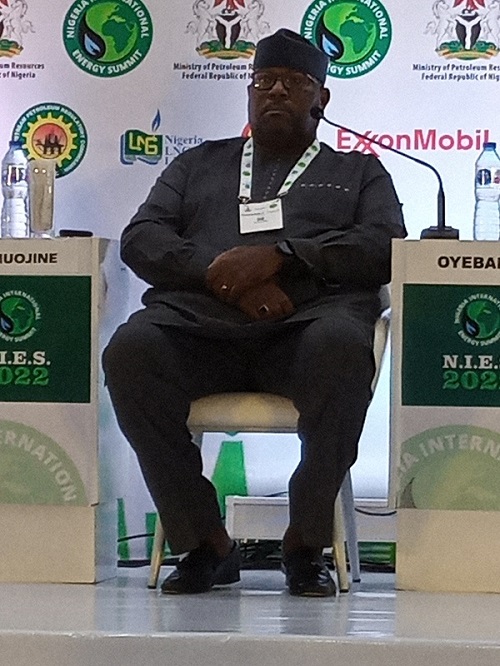Mr. Adetunji Oyebanji, Managing Director of 11Plc
-By Felix Douglas
In energy value chain with regards to petroleum industry, the downstream side is enmeshed with a lot of challenges as marketers are always at loggerheads with end users when there is hike in price of Premium Motor Spirit (PMS), commonly called petrol.
With the Petroleum Industry Act (PIA) in place, stakeholders are of the view that burgeoning issues in the sector will be resolved since the Act will help create an enabling environment for investment. The Nigerian Midstream and Downstream Petroleum Regulatory Authority (NMDPRA), has deployed medium goals to create an enabling environment for the industry to thrive.
One of Nigeria’s downstream giant, Managing Director of 11Plc, Mr. Adetunji Oyebanji, speaking at the Midstream & Downstream Leaders Forum at the Nigerian International Energy Summit (N.I.E.S), said the reality is that operators in the downstream have found themselves in a situation where there has been postponement of key element of the legislation which cannot be avoided.
Oyebanji said present issues that are being dealt with in the industry would have been resolved through an early transition to full deregulation particularly petrol price which could have helped to create an enabling environment to resolve some fundamental issues.
The former Chairman of Major Marketers Association of Nigeria (MOMAN), pointed out that one of the objectives of PIA is to encourage investment and the way investment can be encouraged is for players to have adequate returns in all levels of the value chain.
He stated thus: “Be it retailers, be it those people who own depots everybody is looking to achieve a reasonable return of his investments.”
“So, when the key element of PIA has not been implemented, it becomes a challenge especially for NMDPRA to manage that elongated transition.”
“Managing those elongated transition throws up these issues which have always been there and the expectations of PIA will now resolve them but because of that delay, there are issues like margins for retailers, cost of investment in retail outlets, pipelines, depot and trucks to covey products. The cost of operation continue to change. For instance, the cost of diesel has gone up significantly. All these things are impacting on the incomes of various players within the value chain.”
Oyebanji added that since the downstream has not fully deregulated, operators are putting a lot of pressures on NMDPRA to address those issues. Unfortunately, these pressures invariably will continue as long as the cost of operation in the industry goes up.
“I know there have been a lot of engagements, the Authority had been engaging with NARTO to try and resolve issues around free trade. We as marketers have approached NMDPRA to take a look at our margins. Hopefully, we would have been dealt with all these issues, if we have been able to deregulate the downstream.”
He spoke on the aspect of midstream, that if a new refinery is on stream but infrastructure to capture the entire value of investment is not put in place, it will not augur well.
“For instance, how do you evacuate products from the refinery for the fact that we don’t have enough roads to evacuate products? All these things are relevant such that by the time we have fully deregulated, when the refinery comes on stream, we begin to look for the impact in terms of value and we don’t have the full value of investment because of additional infrastructure that are needed which PIA is supposed to encouraged. Eventually, we are not getting returns that is supposed to be acquired from the investment.”
However, the 11Plc boss was optimistic that Nigeria will overcome the current challenges in future.
“We should begin to focus on when we will finally get fully deregulated and free market pricing will be the order of the day while competition will find its place in downstream.”
NMDPRA will become the real dominant issue in the industry and requirement for a level playing field for operating in an enabling environment becomes extremely critical.
Oyebanji urged operators that irrespective of current challenges confronting the downstream, there is need to work together and collaborate with NMDPRA to ensure that when the whistle is finally blown for deregulation, Nigeria will have an industry that can deliver on expectations that the country can be proud of.
“We have an industry that is gearing up towards deregulation, in the meantime, we call on our operators to also step up to deal with the challenges we are facing because there is opportunity for investment when we deregulate.”


Comment here